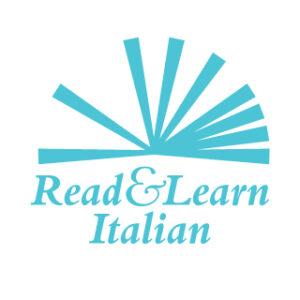
Blog in italiano – tempo di lettura: 3 min
Blog in English – reading time: 3 min
________________
Blog in italiano
Come promesso, ecco la seconda parte della chiacchierata con Costanza, insegnante di italiano e autrice del sito “Read and learn italian” (www.readandlearnitalian.com).
Ricordate dove eravamo rimasti?
Ispirandosi al libro In altre parole scritto da Jhumpa Lahiri (scrittrice statunitense di origini indiane appassionata di lingua italiana), Costanza ci ha dato i primi tre suggerimenti per imparare una lingua:
1 Immergetevi, tuffatevi nella lingua!
2 Non fate tutto da soli.
3 Iniziate a parlare in italiano fin dall’inizio.
In questo episodio ne aggiunge altri tre:
4 Iniziate dalla letteratura
Per immergervi ancora di più nella lingua iniziate dalla sua letteratura! Leggete romanzi italiani in italiano. Jhumpa ad un certo punto della sua vita decide di trasferirsi a Roma. Che cosa fa per prepararsi al suo viaggio? Rinuncia alla sua lingua, l’inglese, e ai suoi cari libri inglesi. Inizia a leggere solo in italiano romanzi italiani. Certo non è semplice ma Jhumpa non si lascia intimidire dalla lingua e dalle parole che non capisce. Non si ferma ad ogni parola, annota quelle che la colpiscono, cerca di capire il loro significato dal contesto.
5 Scrivete in italiano
Il quinto consiglio ispirato dal viaggio linguistico di Jhumpa è quello di scrivere in italiano. La scrittura nella lingua che vogliamo imparare è fondamentale per trovare la propria identità, la propria voce in quella lingua. Quando si impara una lingua straniera ci si trasforma e reinventa. Scrivere aiuta a ritrovare quella voce ed esprimere noi stessi con parole nuove.
6 Annotate le parole nuove
Il sesto e ultimo consiglio riguarda le parole. Quando impariamo una nuova lingua siamo sempre in cerca di parole nuove per esprimerci meglio. Per memorizzarle e utilizzarle Jhumpa annota in un taccuino quelle che le paiono importanti, belle, inusuali, particolari. Sono parole importanti per lei, parole che ha letto, scritto, ripensato, a volte dimenticato e ripescato. Sono liste di parole vissute e fatte sue. Il mio consiglio è questo: non affidatevi solamente a liste di parole che trovate prefabbricate in manuali o create da altri. Createle voi stessi quelle liste, fatele vostre, giocateci, leggetele, usatele, vivetele. Per esempio potreste creare delle liste tematiche sul contenuto di un libro, di un film, di un articolo di un giornale, di una conversazione… Le parole nuove in questo caso sono inserite in un contesto, avranno un significato particolare per voi e, probabilmente, sarà più facile ricordarle e riutilizzarle al momento giusto.
Vi possono essere molto utili anche i quizlet! (servizio web che consente di realizzare test, quiz, flashcard, giochi per rendere divertente e stimolante l’apprendimento).
Che preferiate libri cartacei o e-book l’importante è leggere in italiano!
Costanza consiglia IBS per le spedizioni internazionali.
Anche questo episodio si conclude con dei suggerimenti di lettura:
per un QCER livello intermedio (B2) Costanza suggerisce il libro Il barone rampante di Italo Calvino;
per un livello avanzato (C1-C2) due libri del Premio Nobel Luigi Pirandello: Il fu Mattia Pascal e Uno nessuno centomila.
Alla prossima!
By Sara🎙🇮🇹
►Prova ad ascoltarci con trascrizioni e sottotitoli:
https://www.litalianovero.it/wp/trascrizioni-episodi/
Se le provi migliori e ci sostieni.💪
►Ti piace il nostro podcast? Per favore sostienici al costo di un caffè perché
senza di voi non ci sarebbe il podcast:
https://www.patreon.com/litalianoveropodcast
________________
Blog in Inglese
As promised, here is the second part of the chat with Costanza, Italian teacher and author of the site “Read and learn Italian” (www.readandlearnitalian.com).
Do you remember where we left off in part 1?
Inspired by the book In altre parole (In Other Words) written by Jhumpa Lahiri (American writer of Indian origins with a passion for the Italian language), Costanza previously gave us the first three tips for learning a language:
1 Immerse yourself, dive right into the language!
2 Don’t do it all by yourself.
3 Start speaking in Italian from the very beginning.
In this episode she adds three more tips:
4 Start with literature
To immerse yourself even more in the language, start with its literature! Read Italian novels in Italian. Jhumpa at some point in her life decides to move to Rome. What are you doing to prepare for your own trip? She renounces her language, English, and her dear English books. Start reading Italian novels only in Italian. Of course it’s not easy at first but Jhumpa doesn’t let herself be intimidated by the language and words she doesn’t understand. She doesn’t stop at every word, she notes those that stump her, and tries to understand their meaning from the context.
5 Write in Italian
The fifth piece of advice inspired by Jhumpa’s language journey is to write in Italian. Writing in the language we want to learn is essential to find one’s identity, one’s voice in that language. When you learn a foreign language, you transform and reinvent yourself. Writing helps us find that voice and express ourselves with new words.
6 Write down the new vocabulary words
The sixth and final piece of advice concerns words. When we learn a new language we are always looking for new words to express ourselves better. To memorize and use them, Jhumpa notes in a notebook those that seem important, beautiful, unusual, or particular. These are important words for her, words she has read, written, rethought, sometimes forgotten and rescued. They are lists of words lived and made hers, “My advice is this: don’t just rely on wordlists that you find pre-made in manuals or created by others. Create those lists yourself, make them yours, play them, read them, use them, and live them. For example, you could create thematic lists on the content of a book, a film, a newspaper article, a conversation … The new words in this case are placed in a context, will have a particular meaning for you and, probably, it will be easier to remember them and reuse them at the right time.”
Quizlet can also be very useful! (a web service that allows you to create personalized tests, quizzes, flashcards, games to make learning fun and stimulating).
Whether you prefer paper books or e-books, the important thing is to read in Italian! Costanza recommends the IBS site for international shipments.
This episode also ends with some reading suggestions:
for an intermediate CEFR level (B2) Costanza suggests the book Il Barone Rampante (Baron in the Trees) by Italo Calvino;
and for an advanced CEFR level (C1-C2) two books by the Nobel Prize winner Luigi Pirandello: Il Fu Mattia Pascal (The Late Mattia Pascal) and Uno nessuno centomila (One, None and a Hundred Thousand).
Until next time!
By Kevin (ItalianRocks)
►Try listening to us with transcripts and subtitles:
https://www.litalianovero.it/wp/trascrizioni-episodi/
If you try them you improve and support us.💪
►Do you like the podcast? Please support us at the cost of a coffee
without you there would be no podcast:
https://www.patreon.com/litalianoveropodcast
 Settembre 9, 2019
Settembre 9, 2019 24 min
24 min Luglio 29, 2019
Luglio 29, 2019 13 min
13 min Luglio 15, 2019
Luglio 15, 2019 24 min
24 min Luglio 1, 2019
Luglio 1, 2019 15 min
15 min Giugno 17, 2019
Giugno 17, 2019 21 min
21 min Maggio 30, 2019
Maggio 30, 2019 29 min
29 min Maggio 9, 2019
Maggio 9, 2019 21 min
21 min Aprile 30, 2019
Aprile 30, 2019 28 min
28 min Aprile 17, 2019
Aprile 17, 2019 15 min
15 min Aprile 10, 2019
Aprile 10, 2019 24 min
24 min Aprile 3, 2019
Aprile 3, 2019 24 min
24 min Gennaio 26, 2020
Gennaio 26, 2020 21 min
21 min Gennaio 12, 2020
Gennaio 12, 2020 20 min
20 min Dicembre 29, 2019
Dicembre 29, 2019 24 min
24 min Dicembre 15, 2019
Dicembre 15, 2019 21 min
21 min Dicembre 1, 2019
Dicembre 1, 2019 12 min
12 min Novembre 17, 2019
Novembre 17, 2019 min
min Novembre 3, 2019
Novembre 3, 2019 20 min
20 min Ottobre 20, 2019
Ottobre 20, 2019 14 min
14 min Ottobre 7, 2019
Ottobre 7, 2019 9 min
9 min Settembre 23, 2019
Settembre 23, 2019 33 min
33 min Gennaio 9, 2024
Gennaio 9, 2024 6 min
6 min Dicembre 2, 2022
Dicembre 2, 2022 31 min
31 min Ottobre 8, 2022
Ottobre 8, 2022 18 min
18 min Dicembre 25, 2021
Dicembre 25, 2021 1 min
1 min Settembre 18, 2021
Settembre 18, 2021 21 min
21 min Agosto 14, 2021
Agosto 14, 2021 17 min
17 min Maggio 4, 2020
Maggio 4, 2020 32 min
32 min Aprile 12, 2020
Aprile 12, 2020 41 min
41 min Agosto 26, 2019
Agosto 26, 2019 18 min
18 min Agosto 12, 2019
Agosto 12, 2019 11 min
11 min Giugno 5, 2019
Giugno 5, 2019 9 min
9 min








Leave a Comment